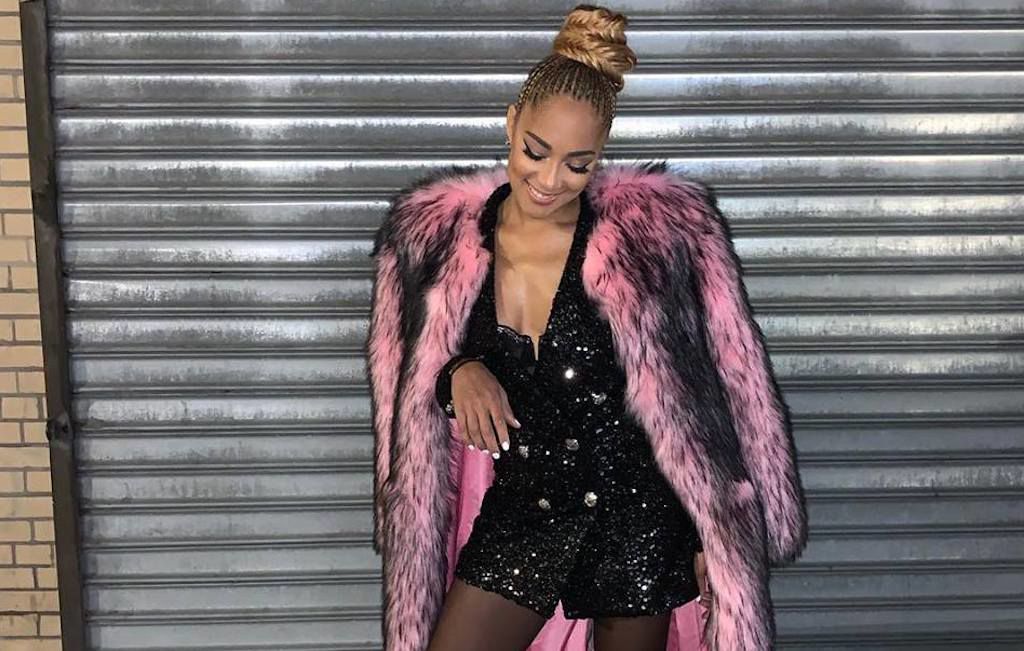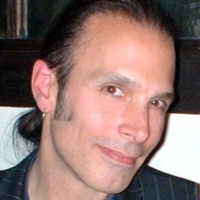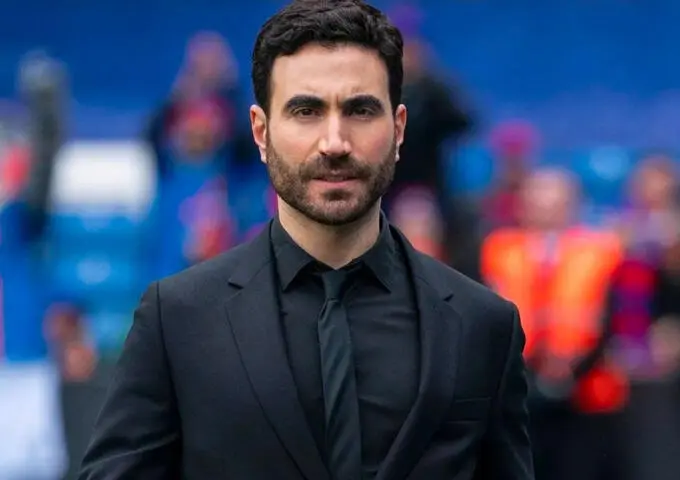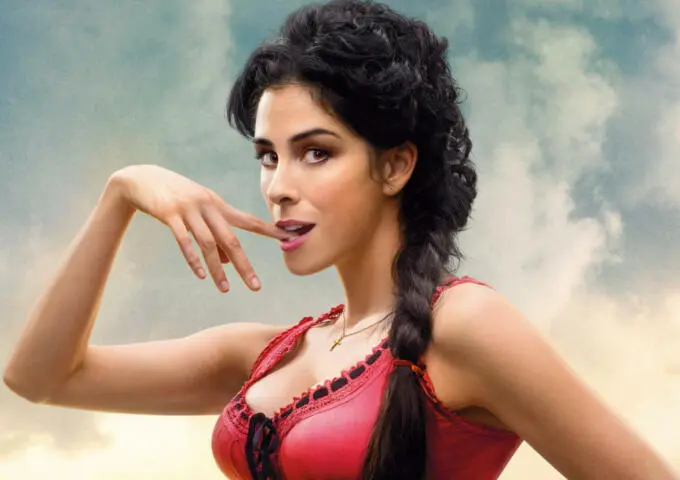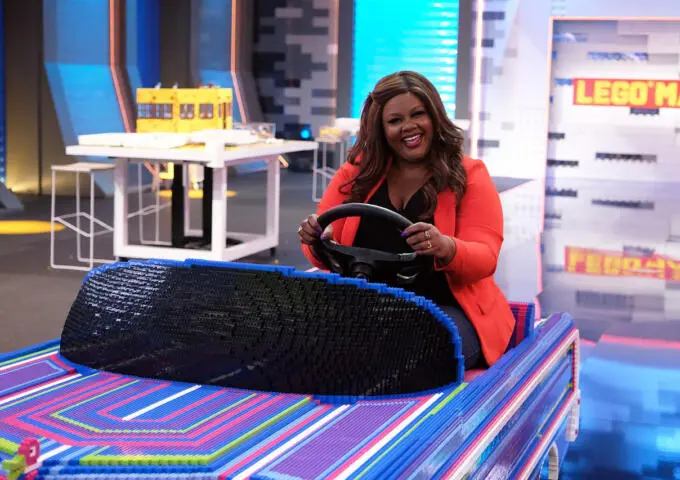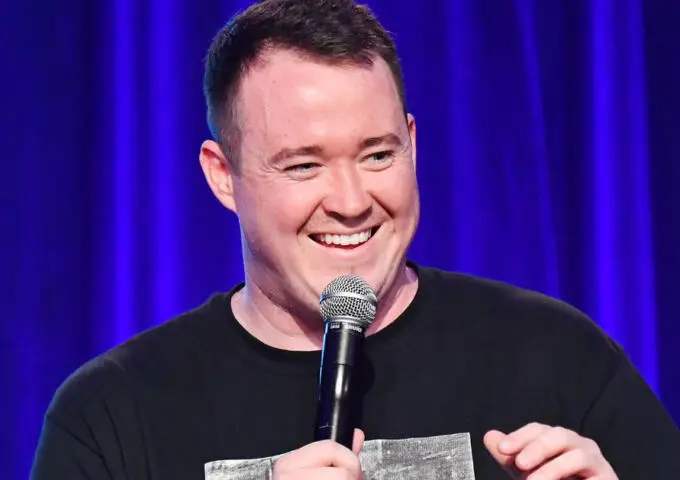Give Amanda Seales credit.
Ever since she turned 30 and moved away from MTV VJ-ing toward stand-up comedy, she and her acts have become focused, ferocious and frankly Afro-conscious.
Along with becoming the official comic mistress of ceremonies for The Roots Picnic — a gig she didn’t tackle this year — she’s an actress on Issa Rae’s magnetically humorous HBO series “Insecure” (which season four just got pushed to early 2020) and a regular name at the Heliums of the world.
The mega-confident Seales has been sought after for gigs such as the host of NBC’s comedy competition “Bring The Funny,” which premiered July 9, and for showcases such as her self-created “Smart, Funny & Black” tour, headed to the Merriam Theater on July 21.
With a band behind her, Seales, who will sing and rap on this live game show and self-described safe space, promises to take a look at black culture, black history and the black experience through a series of regionally-centric, audience-interactive stage games she wrote just for the occasion. Expect a cameo from local comic TuRae Gordon. Given Seales’ history with Philadelphia, also expect lots of area trivia to be part of her competitive edge.
I had hoped to discuss Seales’ absence from the 2019 iteration of The Roots Picnic, as well as her role on “Insecure,” but, quite honestly, she was having none of it. Still, it all made for quite the conversation.
As a comedy writer yourself, how have you viewed working with and for Issa Rae?
(Long, deep sigh) Go on.
I wanted to know how and what you feel about Rae’s characters’ choices and wit, especially involving your character, Tiffany?
I thought we were talking about ‘Smart, Funny & Black.’
We are.
I don’t want to talk about Issa Rae. I don’t want to talk about ‘Insecure.’ I want to talk about my projects and what I’m doing.
You’re doing that, too, but OK. I’ve witnessed your stand-up act before and they’ve mostly been in intimate environments, such as comedy clubs or a festival like The Roots Picnic. How has expanding into theaters changed your performance stance, especially going into the live game show realm of ‘Smart, Funny & Black?’
Working theaters has been not as much of a shift as I thought it would be. It’s like you said: Intimate spaces, especially for comedy, are ideal. I expected it to be something different. There are larger numbers of people in these rooms to consider, and being less intimate doesn’t mean less connection. It’s a bigger sense of community and more opportunities for people to interact and relate to each other on the same page.
Why did you choose to do a game show on stage rather than your usual stand up?
I wanted to do something that, format-wise, was lighthearted, but that content-wise, had gravitas. This ended up with a game show falling into place as the best option for my ideas.
I’ve done some real thinking about this. Other than Steve Harvey, Jamie Foxx and the hip hop iteration of ‘Hollywood Squares,’ there have been few African-American faces at the head of a game show.
I am somebody who grew up watching “The Price is Right” and “Family Feud.” My family had A game night. We played ‘Scattergories’ and trivia night. It wasn’t so far-fetched from my life and my personal interests. To your point, yes. Also, there have not been any black women at the helm of any game shows. If it’s uncommon, the more likely it is for me to want to be involved in it.
I’m not trying to connect the two gigs, but it’s interesting that at the same time you are touring with a game show, you’re also on television hosting a comedy competition.
That was a phone call. They were fans of my voice. Also, I have been doing “Smart, Funny & Black” since 2016, so I think the law of attraction is at work there. Me being in this host space — and I have been hosting things for such a long time — made it so that, naturally, things wound up going in this direction.
The stage show allows you to sing and rap, something you haven’t done since your brief tenure in Floetry. What made you want to dip your toe back into the music pool?
I have this fascination with (laughs) large groups of people in a room singing at the same time. I just love it. Even when I was DJing, I would pick a song everyone knows the words to, drop the volume and let everyone sing the lyrics. The unity of it all, the energy that fills the space. Going to a Billy Joel concert at Madison Square Garden and hearing and seeing everyone sing the words to ‘Piano Man,’ reverberating through the rafters, felt fulfilling and inspiring to me. Bringing that into the cultural space of ‘Smart, Funny & Black’ and singing songs so culturally specific to black folks — SWV’s ‘Weak,’ ‘Before I Let Go’ — allows me to connect the dots. Having the band with us makes it a stronger move with intention to do that.
So I walk into the Merriam, sit down. How do I become part of the show?
There’s no fourth wall. It is very communicative in terms of what I want from the audience, [from] how I talk to them and how they respond to my questions. We have different ‘fams’ — Fly Fam, Culture Fam and more. It all depends on what ‘fam’ you consider yourself to be. It’s similar to Harry Potter’s houses. It also comes down to how you judge your involvement. Some of the games are right and wrong answers, but some of them are based on which black-[ex]pert does better with the games. There is subjective judging, which integrally involves the audience and how they respond. There is a moment of ebony excellence. The audience is involved, top to bottom. If they’re not in tune with us, it doesn’t work right.
You did quite a bit of stuff before stand-up comedy. You came late to the game. What do you recall about your first set of jokes or funny ideas you put forth? What do you recall about getting into stand up?
I recall needing to come up with something funny to talk about all the time. I realized that was a very inorganic practice and that my comedy comes from just living — being able to observe things happening and finding the funny beats within them — and then expanding upon that. I didn’t want to cultivate humor from the petri dish of my mind. It had to be organic. I had hit a rut, trying to figure my next move, when I heard from a fellow comic that my ‘just talking’ is funny, just expounding upon experience is funny. Coming from hip hop, as I did, gave me a viewpoint all my own, as did my expansive vocabulary. It took someone from the outside to give me that viewpoint. Being able to be onstage and know I was funny without having to convince an audience — that’s how I knew I was OK. Having to convince is a very defensive place. When you know you’re funny, that’s offensive, which changes the dynamic completely.
‘Smart, Funny & Black’ isn’t a stand-up show, per se. But what is on your mind that might sneak through? And how does that connect to Philly, where you have spent so much time?
It’s not about current events as much as it is a cultural experience. Our black-[ex]perts for the show are TuRae Gordon and Roy Wood Jr. from ‘The Daily Show,’ two individual master comedians; very witty, very seasoned men who’ll give us a full-on performance. I give them a game and they turn it into a theatrical experience. And Philly? I love the juxtaposition between the old and the new. That can be architecturally as well as culturally. I think for the black folk of Philly, there has been a history of police brutality and segregation — let’s not forget that Philly bombed an entire block of people — so to come there speaks specifically to the resilience of black folks in that city. Not only to thrive culturally and economically, but also artistically. We’ll touch on all that. Trust me.
Amanda Seales: Smart, Funny and Black | July 21, 8pm. Merriam Theater, 250 S. Broad St. kimmelcenter.org
TWITTER: @ADAMOROSI
